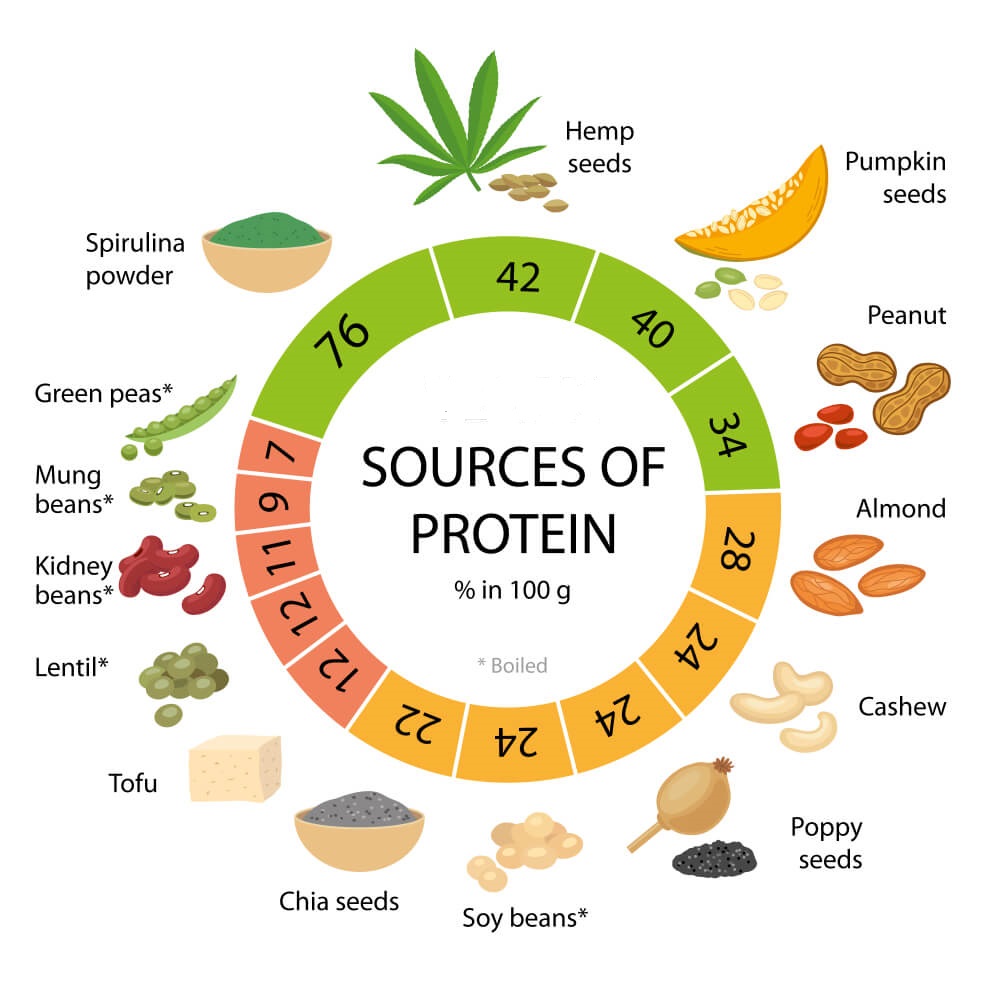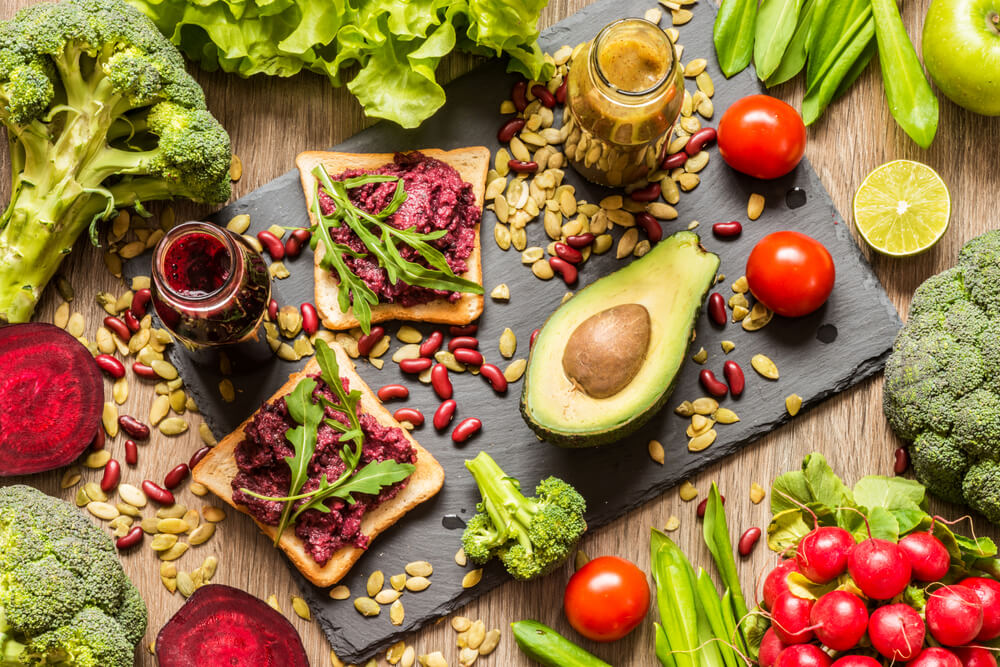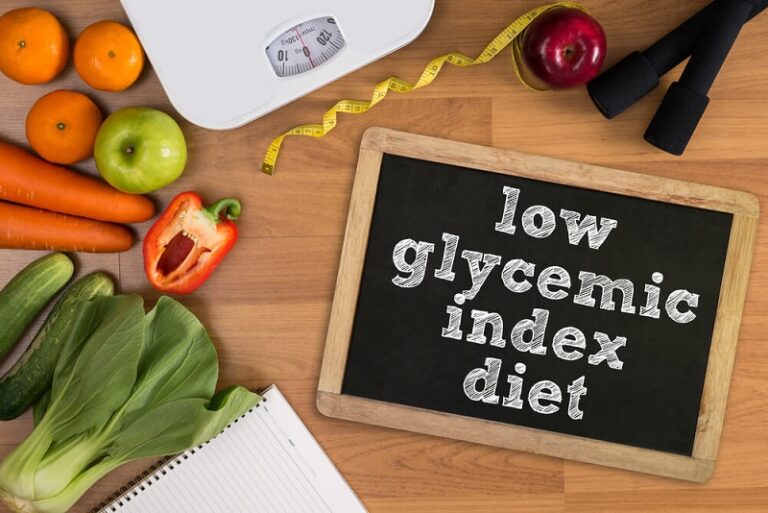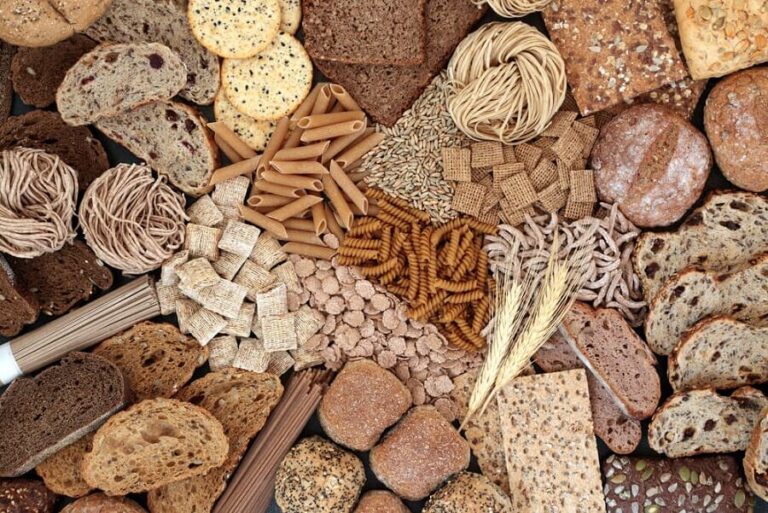what is a plant based diet?
Plant based diet focus on foods primarily from plants. This includes whole grains, legumes, beans, nuts, seeds, and oils in addition to fruits and vegetables. It doesn’t imply that you abstain from all animal products and are a vegetarian or vegan. Instead, a greater part of your diet is made up of meals from plant sources.
Difference Between Plant Based Diet And Vegetarian
A vegetarian is someone who refrains from eating any meat, fish, or poultry. Vegetarianism is typically a choice made for moral, ethical, or religious grounds. For instance, a person might be concerned about the welfare of animals or believe that killing them for food is unnecessary. Another person might behave in this way because they were brought up in a society or religion that regards animals as sacred or holy.
Vegetarian diets come in a variety of forms. Some people consume both plant-based diets and animal goods including milk, honey, and eggs. Some people follow vegan diets which forgo all meals containing any animal products, such as eggs, milk, and honey. Fish is permitted on some vegetarian diets but not on others.
plant based diet for beginners
To get started your plant based diet, here are some tips.
Consume a lot of vegetables. Vegetables should take up half of your lunch and supper plates. Make careful to choose vegetables that are a variety of colours. Snack on some vegetables with hummus, salsa, or guacamole. (1)
Modify your perspective on meat. smaller portions. Use it as a garnish rather than a focal point.
Pick healthy fats. Olive oil, olives, nuts, nut butters, seeds, and avocados are all excellent sources of healthful fats.
Every week, prepare a vegetarian dish at least once. Veggies, whole grains, and legumes should be the foundation of these dishes.
Breakfast should contain whole grains. Start with barley, quinoa, oats, or another grain. Then combine fresh fruit with some nuts or seeds.
Try different green leafy vegetables every day, including kale, collards, Swiss chard, spinach, and other leafy greens. To keep their flavor and nutrition, stir-fry, grill, braise, or steam is recommended.
Organize your dinner around a salad. Salad greens like romaine, spinach, Bibb, or red leafy greens should be added to a bowl. Add fresh herbs, beans, peas, or tofu along with a variety of other vegetables.
Consume fruit as dessert. After a meal, a ripe, juicy peach, a cool slice of watermelon, or a crunchy apple will sate your desire for a sweet treat.
benefits of plant based diet
- Plant based diets also avoid essential animal-based items that tend to encourage insulin resistance, particularly processed and unprocessed red meat. Plant based dietary regimen is high in fiber and contains beans, whole grains, fruits, vegetables, nuts, and legumes. These substances have all been discovered to be anti diabetic. Brown rice, whole-grain cereals, and other whole grains have all been linked to a lower risk of acquiring diabetes. (2)
- It is challenging to determine how much of the improvement in glycemic control is attributable to weight loss vs dietary modifications because high-carbohydrate, low-fat, mostly vegetarian diets are frequently associated with weight loss.
- Another benefit of this diet is to reduce risk factors of cardiovascular diseases. Numerous studies have shown the advantages of plant-based diets in preventing and treating cardiovascular disease, which is the main cause of premature mortality in the diabetic population.
- Consuming more plant based meals, such as grains and vegetables, as opposed to animal based foods, such red meat, may assist to prevent and reduce the progression of chronic kidney disease. (3)
Some other benefits include:
- Lower cholesterol, blood pressure, and blood sugar
- Reversal or prevention of heart disease
- Longer life
- Healthier weight
- May slow the progression of certain types of cancer
- Improved symptoms of rheumatoid arthritis
- Lower food costs
- Good for the environment
How Does Plant Based Diet Affect Insulin Level
Fiber, antioxidants, and magnesium are rich in plant-based diets, all of which have been demonstrated to improve insulin sensitivity. Antioxidants like polyphenols may limit glucose absorption, increase glucose uptake, promote insulin secretion, and diminish hepatic glucose output. Fiber, which is only present in plant based diets, regulates the postprandial glucose response. It is also digested by gut bacteria to create short-chain fatty acids, which enhance the postprandial glucose response as well as insulin signaling and insulin sensitivity. Plant-based diets tend to promote weight loss and lower adiposity actors that are highly protective against insulin resistance.

What are the sources of plant protein?
Every cell in the human body has protein. Muscles, bone, skin, and the immune system may all be built and repaired with it. To produce enzymes and hormones, we also require it. Amino acids make up proteins. Not all amino acids, but some of them, are synthesized by your body. Essentials are those that your body cannot produce on its own. Your daily protein requirements can be readily met by plant-based meals including beans, peas, nuts, seeds, soy products, whole grains, and vegetables. Quinoa, a grain-like seed, is a fantastic source of protein and contains all nine essential amino acids.
Other sources of protein include:
- Soy products (tofu)
- Legumes (beans, lentils)
- Meat substitutes (soy-based burgers, hot dogs, deli slices)
- Nuts and nut butters
Omega-3 Acids Sources
EPA and DHA, two omega-3 fatty acids present in fatty fish, may reduce the risk of heart disease and benefit the immune system and brain. Walnuts, chia seeds, flaxseed oil, crushed flaxseeds, and organic canola oil are all excellent sources of plant-based omega-3 fats. Plant-based omega-3s are difficult for the body to transform into EPA and DHA.
Vitamin B12
B12 is found in nutritional yeast and some fortified foods such as rice, cereals or hemp milk.
Iron
Whole-grain breads and cereals, dried beans and peas, dark green leafy vegetables, dried fruits, nuts, and seeds are a few examples of plant foods high in iron. Some foods, including morning cereals, are iron-fortified. Iron from plant meals is not as easily absorbed as iron from animal sources. However, consuming meals high in iron and vitamin C together can improve how well your body utilizes the iron. Some foods with vitamin C are oranges, mangos, kiwis, strawberries, red peppers, tomatoes, broccoli, and bok choy.
Calcium
Calcium aids in tooth and bone development. Additionally, it plays a crucial role in how well the heart, muscles, and nerves work. Chinese cabbage, bok choy, kale, calcium-set tofu, and broccoli are all excellent sources of calcium. Several foods, including cereal and soy or almond milk, are fortified with calcium.
Zinc & Vitamin D
The immune system, wound healing, and blood sugar regulation all benefit from zinc. Whole grains, tofu, tempeh, beans, peas, lentils, nuts, seeds, and fortified breakfast cereals are all excellent sources. Zinc absorption is inhibited by substances called phytates found in plant-based meals. Several hours of pre-soaking in water before cooking beans, grains, and seeds can help with this. Consuming sprouted grains and beans instead of crackers, as well as leavened grains like bread, improves absorption. Foodstuffs with zinc added to them include.
Vitamin D is needed for strong bones. It is also needed for muscles and nerves and the immune system to work properly. Very few foods have vitamin D. We get most of our vitamin D when the skin is exposed to the sun, but many people do not make enough from sun exposure alone. Some foods, such as soy or almond milk and cereal have added vitamin D.
Are eggs allowed on plant based diet?
There are 2 theories that some say which is ok to eat eggs and some not, however eggs are a great addition to a plant-based diet since they might encourage you to eat more vegetables. Additionally, foods like vitamin E and carotenoids that are found in plant meals are fat-soluble vitamins and antioxidants that eggs can help you absorb more of.
What foods can’t you eat on a plant-based diet?
Any animal based protein or derived from animals. Below are the some of the examples.
- Beef, pork, lamb, and other red meat.
- Chicken, duck, and other poultry.
- Fish or shellfish such as crabs, clams, and mussels.
- Cheese, butter.
- Milk, cream, ice cream, and other dairy products.
- Honey.

plant-based diet recipes
Recipe 1
| Breakfast | Lunch | Dinner | Snack |
| Barley with raisins, cinnamon, walnuts, and almond milk Hot tea or coffee | Whole-wheat pita with hummus, tomatoes, red onions, and cucumber Kale sautéed with vegetable broth Salad with vegetables and balsamic vinegar Banana Unsweetened tea | Grilled Portobello mushroom burger with caramelized onions Quinoa and bean salad Strawberries Unsweetened tea | Air-popped popcorn, kettle corn Unsweetened cereal with plant-based milk |
Recipe 2
| Breakfast | Lunch | Dinner | Snack |
| Oatmeal with blueberries, walnuts, and soy milk Hot tea or coffee | Split pea, carrot, and barley soup Salad with spring mix, vegetables, kidney beans, and balsamic vinegar Orange Sparkling mineral water | Tacos with whole-grain tortillas, grilled vegetables, potatoes, avocado, and salsa Pinto beans Salad with vegetables and balsamic vinegar and mustard Mango Sparkling mineral water | Whole grain English muffin topped with avocado and tomato Fresh fruit or unsweetened dried or packaged fruit |
In conclusion a plant based diet is beneficial to your health. Lowering a person’s blood pressure, weight, cholesterol, and risk of cardiovascular disease development can all be beneficial. Additionally, it aids in the prevention of fatal chronic conditions like cancer and diabetes.
Other Articles You May Be Interested In:






